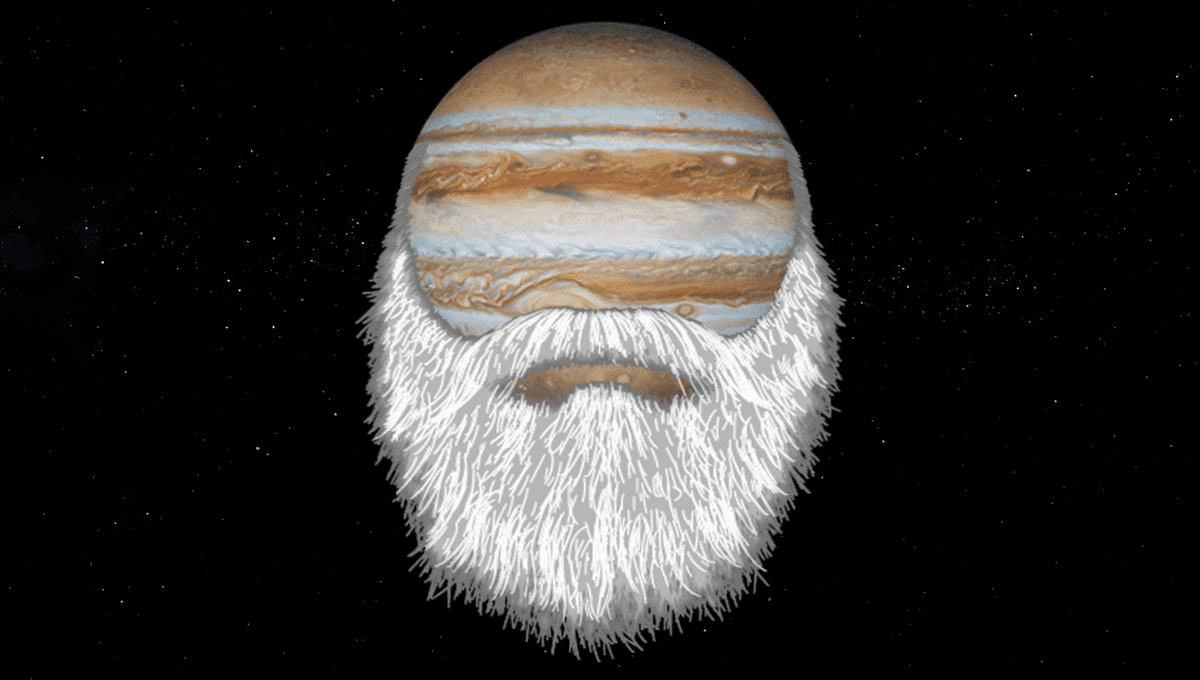
About 5 billion years ago, our Sun began to turn hydrogen into helium at its core to become a fully-fledged star. This baby Sun was surrounded by a disk of material – mostly hydrogen from the nebula it formed, but also more complex molecules. Interactions in this disk produced icy and dusty grains that grew and interacted with others. Gassy chunks of this disk might have separated from the rest, too. And from this stirring chaos, planets emerged.
What is the oldest planet in the Solar System?
The first to form, possibly within the first 3 million years of the Solar System, is Jupiter. That’s how it became so big and strong, much bigger than any other planet. Jupiter is so big it has a mass of 318 Earths. In fact, the barycenter between Jupiter and the Sun – the point around which Jupiter orbits the Sun – is not the Sun’s center, but just outside its surface. So Jupiter doesn’t even precisely orbit the Sun.
On the heels of Jupiter, Saturn too began to grow followed by Neptune and Uranus. Although by the time the latter two were well on their way, Jupiter and Saturn had already swept up a large portion of the gas in the outer Solar System. The Jovian system is certainly where things can grow old. Although it has active moons like Europa, Io, and Ganymede, its moon Callisto has the oldest surface in the Solar System.
During this time, in the inner Solar System, four rocky planets and a dwarf planet were emerging among the spread-out rubble. The rocky protoplanet took a long longer to emerge, perhaps closer to 100 million years, as it depended on collisions between rocky bodies. Mars may have reached its present size quickly, quicker than Earth and Venus anyway, but the jury is out on the exact timing. Usually, solid astronomical bodies’ ages are estimated using the number of craters on their surface, but celestial objects where the surface changes make it complicated.
What is the youngest planet in the Solar System?
So, while it makes sense for Jupiter to be the oldest based on formation models, it is not as easy to find the youngest. There’s an alternative approach that we could take and consider the planets’ need to have their bulk mass in place as well as having properties consistent with what we see today. Then the context between the youngest becomes a two-horse race between Earth and Uranus.
The reason that these unlikely worlds emerge as the youngest has to do with the fact that they both experienced massive collisions. The primordial Earth likely collided with Theia, a Mars-sized planetoid, and from that dramatic event, the Moon formed. That happened around 4.5 billion years ago. It took the Moon about 200 million years to solidify. The shaken Earth would need a little more time to become what it is today, with the formation of oceans and tectonic plates, the latter maybe as early as 3.6 billion years ago.
Between 3 and 4 billion years ago, Uranus collided with an Earth-sized world that messed up its interior, sent it spinning on its side, and created the weirdest magnetic field. So, when it comes to which is the youngest planet, we really need to define exactly what we mean to reach a solid conclusion. Not to mention, the definition of planet can easily become limiting and controversial, just think of little Pluto.
Source Link: What Is The Oldest And Youngest Planet In The Solar System?